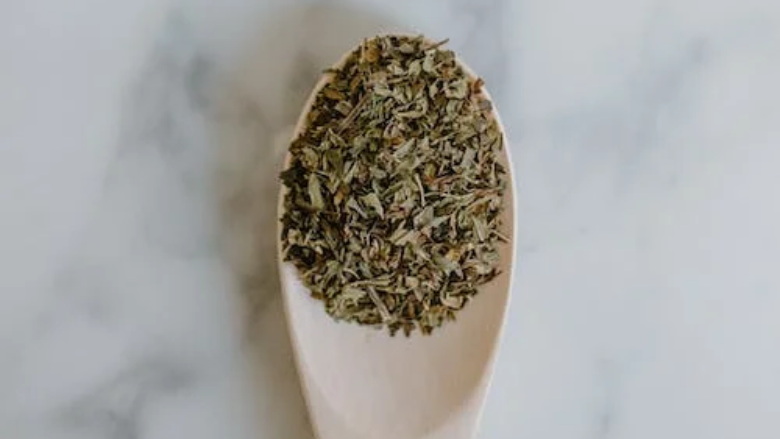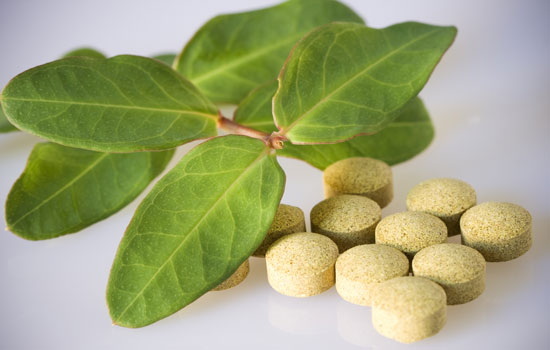Content Menu
● What Is Green Tea Extract?
● How Does Green Tea Extract Harm the Liver?
>> 1. Mechanism of Liver Injury
>> 2. Genetic Susceptibility
>> 3. Interaction with Other Medications
● Case Studies: Real Life Examples
>> 1. Christopher Herrera
>> 2. A 24 Year Old Woman
>> 3. A 35 Year Old Male
● Who Is at Risk?
>> 1. High-Dose Users
>> 2. Women and Ethnic Minorities
>> 3. People with Preexisting Conditions
>> 4. Pregnant and Breastfeeding Women
● Preventive Measures
>> 1. Genetic Testing
>> 2. Limiting Dosage
>> 3. Monitoring Symptoms
>> 4. Regular Health Check-Ups
>> 5. Choosing Safe Alternatives
● Regulatory Response and Future Directions
>> 1. FDA Oversight
>> 2. International Guidelines
>> 3. Research and Awareness
● Conclusion
● FAQs
>> 1. What are the symptoms of green tea extract induced liver damage?
>> 2. How much green tea extract is safe to consume?
>> 3. Can genetic testing predict susceptibility to GTE induced liver injury?
>> 4. Are green tea beverages safer than extracts?
>> 5. What should I do if I suspect liver damage from GTE?
● Citations:
Green tea extract (GTE), often touted for its health benefits, has gained popularity as a dietary supplement for weight loss and disease prevention. However, cases of severe liver damage linked to GTE consumption have raised concerns about its safety. This article explores the mechanisms behind GTE induced liver injury, the populations at risk, and preventive measures.

What Is Green Tea Extract?
Green tea extract is derived from the leaves of Camellia sinensis and is rich in antioxidants called catechins. The most potent catechin in GTE is epigallocatechin gallate (EGCG), which is believed to provide numerous health benefits, including:
- Antioxidant properties: EGCG can neutralize free radicals, potentially reducing oxidative stress.
- Weight loss support: Some studies suggest that EGCG may enhance metabolism and fat burning.
- Cardiovascular health improvement: GTE may help lower cholesterol levels and improve blood flow.
- Cancer prevention: Antioxidants in GTE are thought to have anti-cancer properties, although more research is needed.
Despite these benefits, concentrated forms of GTE in supplements can pose serious risks to liver health.
How Does Green Tea Extract Harm the Liver?
1. Mechanism of Liver Injury
Research indicates that high doses of EGCG can cause oxidative stress and inflammation in liver cells. This leads to hepatocyte apoptosis (cell death) through pathways involving caspase-3 activation and mitochondrial dysfunction.
In animal studies, therapeutic doses of GTE exacerbated liver damage when combined with other hepatotoxic substances like paracetamol. The combination increased oxidative stress markers while depleting antioxidants such as glutathione.
2. Genetic Susceptibility
Certain genetic variations make individuals more prone to liver damage from GTE. A study from Rutgers University identified two key genotypes associated with increased risk:
- COMT genotype: Linked to moderate liver stress
- UGT1A4 genotype: Strongly associated with elevated liver enzymes
Participants with high risk UGT1A4 genotypes experienced an 80% increase in liver stress markers after consuming 843 mg/day of EGCG for nine months.
3. Interaction with Other Medications
GTE may interact with certain medications, enhancing their hepatotoxic effects. For example, combining GTE with statins or certain antidepressants could increase the risk of liver injury.
Case Studies: Real Life Examples
1. Christopher Herrera
At age 17, Christopher Herrera suffered severe liver damage after taking a concentrated green tea extract for weight loss. He developed jaundice and was placed on a liver transplant waiting list. Although he survived, he now lives with long-term health impairments.
2. A 24 Year Old Woman
A young woman experienced acute liver failure after receiving intravenous GTE as part of an alternative therapy. Her symptoms included nausea, abdominal pain, and jaundice. Laboratory tests revealed significantly elevated liver enzymes and bilirubin levels.
3. A 35 Year Old Male
A middle aged man developed severe liver dysfunction after consuming high doses of GTE for several months. His case highlighted the importance of monitoring liver function tests during prolonged use of dietary supplements.

Who Is at Risk?
1. High-Dose Users
Individuals consuming large doses of GTE supplements are at greater risk due to the concentrated levels of EGCG. The risk increases with doses exceeding 800 mg/day.
2. Women and Ethnic Minorities
According to the U.S. Drug-Induced Liver Injury Network, women and Latine individuals are disproportionately affected by GTE-related liver injuries. This disparity may be due to genetic factors or differences in metabolism.
3. People with Preexisting Conditions
Those with preexisting liver conditions, such as hepatitis or cirrhosis, or who consume alcohol regularly may be more vulnerable to GTE's hepatotoxic effects. Additionally, individuals with compromised liver function should avoid GTE supplements altogether.
4. Pregnant and Breastfeeding Women
There is limited research on the safety of GTE during pregnancy and breastfeeding. As a precaution, these groups should avoid using GTE supplements unless advised by a healthcare provider.
Preventive Measures
1. Genetic Testing
Testing for COMT and UGT1A4 genotypes could help identify individuals at higher risk of liver damage from GTE. This can guide personalized recommendations for safe dosing.
2. Limiting Dosage
Experts recommend staying below 300 mg/day of EGCG to minimize risks. It's crucial to follow the recommended dosage on the label and consult a healthcare provider before starting any new supplement.
3. Monitoring Symptoms
Early signs of liver injury include:
- Jaundice (yellowing of skin/eyes)
- Fatigue
- Abdominal pain
- Nausea
- Dark urine
Seek medical attention immediately if these symptoms occur.
4. Regular Health Check-Ups
Regular liver function tests (LFTs) are essential for individuals using GTE supplements long-term. Elevated liver enzymes can indicate early liver damage.
5. Choosing Safe Alternatives
For those seeking the benefits of green tea without the risks, traditional brewed green tea is a safer option. It contains lower concentrations of EGCG and is generally well-tolerated.
Regulatory Response and Future Directions
1. FDA Oversight
In the U.S., the FDA regulates dietary supplements, including GTE, under the Dietary Supplement Health and Education Act (DSHEA). However, the agency does not require pre-market approval for safety or efficacy. This lack of oversight can lead to inconsistent quality and safety among supplements.
2. International Guidelines
Some countries have established guidelines for safe EGCG intake. For instance, the European Food Safety Authority (EFSA) has set a tolerable upper intake level for EGCG.
3. Research and Awareness
Continued research into the mechanisms of GTE-induced liver injury and increased public awareness are crucial for preventing future cases. Healthcare providers should be vigilant in monitoring patients who use GTE supplements.
Conclusion
While green tea extract offers potential health benefits, its risks especially at high doses cannot be ignored. Genetic predispositions, preexisting conditions, and improper use can lead to severe liver damage or even failure. Consumers should exercise caution by consulting healthcare professionals before using GTE supplements and adhering to recommended dosages.

FAQs
1. What are the symptoms of green tea extract induced liver damage?
Symptoms include jaundice, abdominal pain, nausea, vomiting, fatigue, and dark urine.
2. How much green tea extract is safe to consume?
Experts suggest limiting EGCG intake to less than 300 mg/day to reduce the risk of toxicity.
3. Can genetic testing predict susceptibility to GTE induced liver injury?
Yes, testing for COMT and UGT1A4 genotypes can help identify individuals at higher risk.
4. Are green tea beverages safer than extracts?
Yes, traditional green tea contains lower concentrations of EGCG and is generally considered safe when consumed in moderation.
5. What should I do if I suspect liver damage from GTE?
Stop using the supplement immediately and seek medical advice for proper evaluation and treatment.
Citations:
[1] https://www.rutgers.edu/news/green-tea-extract-may-harm-liver-people-certain-genetic-variations
[2] https://www.hsph.harvard.edu/striped/wp-content/uploads/sites/1267/2022/05/Green-Tea-and-Green-Tea-Extract-5.10.2022-CA.pdf
[3] https://pubmed.ncbi.nlm.nih.gov/29078257/
[4] https://pmc.ncbi.nlm.nih.gov/articles/PMC9745259/
[5] https://www.canada.ca/en/health-canada/services/drugs-health-products/medeffect-canada/safety-reviews/green-tea-extract-containing-natural-health-products-assessing-potential-risk-liver-injury.html
[6] https://www.medicalnewstoday.com/articles/269538
[7] https://qualitymatters.usp.org/brewing-thoughts-green-tea-and-liver-injury
[8] https://www.medicalnewstoday.com/articles/6-popular-herbal-supplements-green-tea-curcumin-linked-potential-liver-risks






























